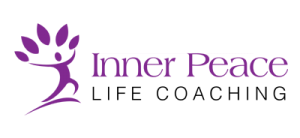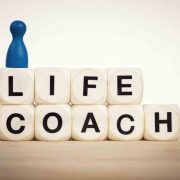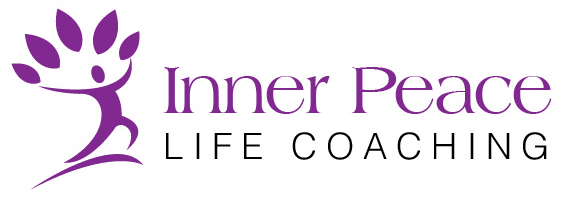Parenting Tips – Simple Way to Build your Child’s Mental Health
Mental Health issues are hard to identify in childhood. All Children go through phases of rebellion, aggressiveness and irritability. However sometimes outward manifestations of problem behavior go unnoticed and may be simply referred to as a phase. Without early intervention, these problem behaviors can sometimes turn out to be potentially fatal in later years.
 An estimated twenty million youngsters can be diagnosed with a mental health condition but only 20% receive appropriate treatment by mental health professionals. So when does one know when to seek help? Given below are a host of symptoms that children may exhibit in varying measures of intensity.
An estimated twenty million youngsters can be diagnosed with a mental health condition but only 20% receive appropriate treatment by mental health professionals. So when does one know when to seek help? Given below are a host of symptoms that children may exhibit in varying measures of intensity.
Intense Irritability and rage, Trouble Sleeping, inability to make friends, talking to imaginary friends, frequent and sudden crying spells, academic struggles, avoiding social activity, engaging in risky behavior, deliberately thwarting authority are just a few of the external manifestations. Left unchecked, it may translate into substance abuse, poor decision making and even suicide. Suffice to say, accurate diagnosis of a child’s mental health is crucial. In such cases, evaluation by a mental health professional is necessary who might take the child’s immediate environment, their school life, their peers, teachers into consideration before formulating a diagnosis.
If the Problem behavior is due to a disorder, then medical intervention is one of the option. There are some who might argue and say that the “problem behavior” might resolve itself. Not true. Also, every behaviour does not require a medical intervention. Some may be child’s coping mechanism and NLP coaching would be the best way to reprogram their coping mechanisms.
Early intervention is very important for young children for whom mental illness can have serious long-term consequences. Young people with a mental illness are at a higher risk for not completing school severely impacting their chances at a successful career. While its true that some individuals display remarkable characteristics in overcoming severe childhood abuse and neglect, these numbers are strikingly low. For the vast majority, the psychological impact of the early years leaves a permanent scar.
Early diagnosis is a key element. Most potential mental health problems will not become mental health problems if we respond to them early. Today two groups of people who can play a major role in assisting the child to cope with complex trends and diabolically opposite and confusing thought processes are Parents/Family and Coaches.
Since parents are the primary care givers for a child, let’s look at some of the ways they can support their child in the early years.
![]() Shower them with Love– Children must feel secure in the knowledge that his/ her parents love them unconditionally. This is absolutely crucial. More often than not, love is withheld and only given if the child performs and achieves a certain level of expertise. This kind of child rearing can sometimes damage the child irrevocably and built belief systems that are counterproductive. Initially, it may lead to rebellion and problem behavior at school and later manifest in deliberate risk taking and suicidal tendencies. All because they were not loved as they should have been.
Shower them with Love– Children must feel secure in the knowledge that his/ her parents love them unconditionally. This is absolutely crucial. More often than not, love is withheld and only given if the child performs and achieves a certain level of expertise. This kind of child rearing can sometimes damage the child irrevocably and built belief systems that are counterproductive. Initially, it may lead to rebellion and problem behavior at school and later manifest in deliberate risk taking and suicidal tendencies. All because they were not loved as they should have been.

![]() Prioritize Family Time– Children must see their parents loving and respecting each other. In other words, the home environment must be dependable, a safe haven to come back to. Young children who may have witnessed parents fighting, who have been beaten mercilessly for a minor fault, who have been made to feel insignificant and small usually never forget such slights. They either bottle up their feelings or become overtly rambunctious. Sometimes all a child desperately needs is to be seen and heard and loved. It’s literally that simple. Dinner table conversations are usually the best time to connect and ask the child how their day was, what was the highlight of the day and so forth. This encourages healthy dialogue and fosters a greater bond between the parent and child.
Prioritize Family Time– Children must see their parents loving and respecting each other. In other words, the home environment must be dependable, a safe haven to come back to. Young children who may have witnessed parents fighting, who have been beaten mercilessly for a minor fault, who have been made to feel insignificant and small usually never forget such slights. They either bottle up their feelings or become overtly rambunctious. Sometimes all a child desperately needs is to be seen and heard and loved. It’s literally that simple. Dinner table conversations are usually the best time to connect and ask the child how their day was, what was the highlight of the day and so forth. This encourages healthy dialogue and fosters a greater bond between the parent and child.
![]() Build a Trust that is Unshakeable– A child shouldn’t have to think twice before speaking to his/ her parent. They must trust them enough to tell them the messy details and the failures. A parent must be the first person to connect with during an emergency. But yet, building that trust is not an instant affair and it can’t be coerced. A child who trusts his/ her parent is in a winning position already. In later years, they will inevitably share every detail and every milestone with their parent. That’s what an effective parent/ child relationship is !
Build a Trust that is Unshakeable– A child shouldn’t have to think twice before speaking to his/ her parent. They must trust them enough to tell them the messy details and the failures. A parent must be the first person to connect with during an emergency. But yet, building that trust is not an instant affair and it can’t be coerced. A child who trusts his/ her parent is in a winning position already. In later years, they will inevitably share every detail and every milestone with their parent. That’s what an effective parent/ child relationship is !
![]() Give them help when it’s Needed– An effective parent is one who realizes the importance of getting an expert opinion and a trusted therapist if the situation demands it. Asking for help can sometimes be the best thing one can do for their child and it must never be accompanied by guilt or embarrassment.
Give them help when it’s Needed– An effective parent is one who realizes the importance of getting an expert opinion and a trusted therapist if the situation demands it. Asking for help can sometimes be the best thing one can do for their child and it must never be accompanied by guilt or embarrassment.
The parent- child connection is the most powerful mental health intervention known to Mankind!!! Focus on this resolutely and the rest is easy.
Learn more about Teens and Parenting
Our Team with certified NLP Practitioners and Coaches can assist you as parents and build a team with your children and reprogram them to cope with life issues in a better and effective way.
Read my Blog on Conscious Parenting using NLP
As an NLP Practitioner and coach who has been dealing with Child Mental Issue for past 10 years, One tip which I would like to offer you here is teach your children to reframe self-critical and judgmental thoughts into more realistic, helpful thoughts to move towards self-acceptance. We have to help our children to understand and accept that it is okay to be different.
But before we work with children, we have to work on ourselves. We often feel we are not a good parent or that I am not able do the best for my child. Increasing one’s awareness of judgmental thinking can be a confronting process. You may be surprised by how many critical thoughts you have on a given day, and this has the potential to lead to negative affect. When you find it difficult to reframe your thoughts in a less judgmental way, think about how you would respond to a good friend in that same situation.
Use the provided Self-Reflection Tool and build your awareness around self-acceptance. The same can be used to build your child’s resilience and self-esteem.
Sajid Ahamed is a “Certified Trainer of NLP” and organizes John Grinder approved New Code NLP and NLP Master Practitioner Certifications Courses in India and the Middle East. He has more than 1000 hours of coaching experience and is an ICF accredited Professional Certified Coach (PCC). Apart from the Trainings, he covers a wide niche of coaching including Relationship Coaching, Parenting Coaching, Leadership Coaching.
To be updated with latest trends in Coaching and psychotherapy, join our Facebook Private group – https://www.facebook.com/groups/findinnerpeace
For Further networking, follow us on
https://www.facebook.com/innerpeacelife/











